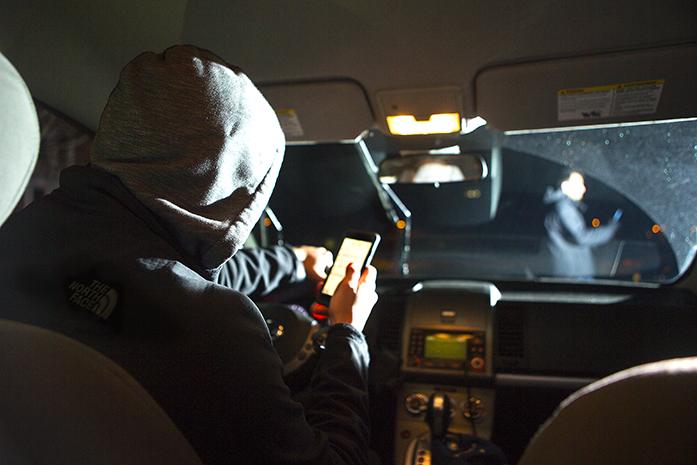By Jason Estrada
jaestrada@uiowa.edu
The move to strengthen Iowa’s ban on texting and driving continues to gain traction among lawmakers despite mixed opinions from the public.
“As a firefighter, I see the direct result of irresponsible behavior when drivers are not focusing on the road,” said Sen. Jeff Danielson, D-Cedar Falls, who supports making texting while driving a primary offense. “It’s time to strengthen Iowa’s laws and save lives.”
Under the new proposed law, texting and driving will become a primary offense, allowing law officers to issue citations if they suspect motorists of texting and driving, even if another violation hasn’t occurred.
Current Iowa law states that drivers are prohibited from texting while behind the wheel, with a consequence of being ticketed.
According to the Iowa Legislature website, the Senate Study Bill 1002 has been approved by a 3-0 subcommittee vote, and it is now being proposed to the Transportation Committee.
Danielson, who is on the Transportation Committee, said any item that distracts driver will be a violation of the new law. He wants the market to move toward a hands-free requirement.
Sen. Thomas Greene, R-Burlington, another member of the Transportation Committee, also favors the proposed law.
Greene said it bothers him when he drives 68 mph from Burlington to Iowa City and is passed by younger drivers driving one-handed while texting with the other hand and driving 75 or 80 mph.
“With today’s technology, they can hook [their phone] into most cars and use their Bluetooth and talk with two hands on the wheel,” he said. “I think it’s a terrible distraction, and it’s only going to get worse until we slow it down.”
According to a 2015 poll by the Des Moines Register, 85 percent of Iowans favored allowing law-enforcement officials to pull over a vehicle if the driver is seen texting; 13 percent opposed it.
Iowa City State Farm insurance agent Boyd Murray said he supports the proposal, citing both professional and personal reasons, and he contends that it’s a huge problem in Iowa City.
“We have a higher percentage of young drivers because we’re a college town, and I think from the insurance standpoint everything we can do to prevent inattentive driving and lower the accident rates is going to help still maintain lower premiums,” he said.
Murray, a father of four daughters, said he has had many discussions with them about not using their cell phones while driving. He said he is fortunate his daughters have taken the lesson to heart, but they have been in dangerous situations when their friends are messing with their phones behind the wheel, including texting.
Although the bill has received some opposition in the state, in Iowa City, the issue of texting and driving is not as prevalent, with the number of citations issued due to texting while driving hitting a low of 11 in 2016, said Iowa City police Sgt. Scott Gaarde, the public information officer.
American Civil Liberties Union of Iowa communication director Veronica Fowler said the organization is against the proposed law. Members of the group have expressed concerns that making phone use or an electronic device as a primary offense will exacerbate racial profiling by the police.
She also noted that there have been studies from traffic-stop data that African Americans and Latinos are far more likely to be pulled over than whites for the same behaviors and offenses.
“The incidence of racially discriminatory traffic stops in Iowa has been well-documented and this just gives police another reason, another pretext, to stop people,” she said. “Sometimes with racial profiling, they’ll say your brake light was out, but there’s no way to prove that.”



